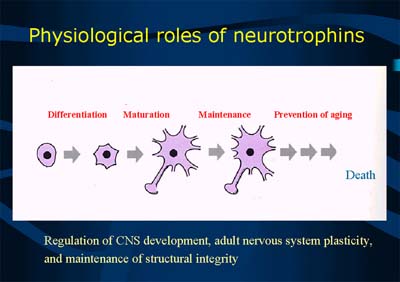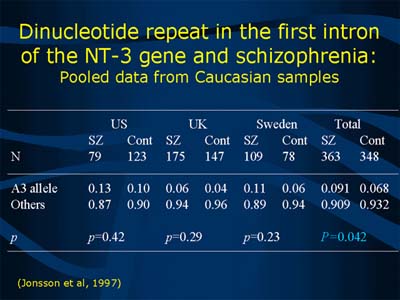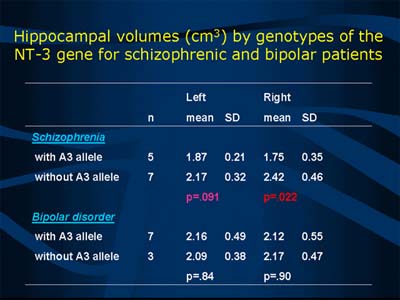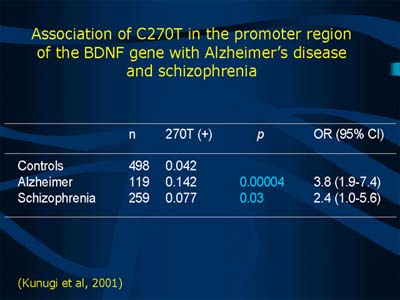There is compelling evidence from family, twin, and adoption studies for a genetic contribution to the development of schizophrenia.
Because schizophrenia has a significant developmental component, it follows that one or more genes conveying susceptibility to schizophrenia may be involved in brain development.
Dr. Kunugi hypothesized that susceptibility genes for schizophrenia are involved in the neurodevelopmental abnormalities seen in schizophrenia, which include ventricular enlargement and reduced volume of the temporal lobe structures and the hippocampus.
Dr. Kunugi proposed that neurotrophic factors may play a role in the etiology of schizophrenia because neurotrophins regulate the initial development of the central nervous system, modulate plasticity of the adult nervous system, and help maintain structural integrity.
Among neurotrophic factors, Dr.Kunugi focused on the neurotrophin family, specifically brain-derived neurotrophic factor (BDNF) and neurotrophin 3 (NT-3).

Dr. Kunugi's research group studied the NT-3 gene and found a dinucleotide repeat polymorphism in the first intron. Association analysis was performed using a case-control design.
The results indicate a significant difference in allele distribution between patients with schizophrenia and normal controls.
The particular allele identified with schizophrenia was A3: Its presence was significantly increased in schizophrenic persons compared with controls. Subsequent replication studies reported similar findings, although others did not.
Dr. Kunugi examined the effect of the A3 allele on brain development. Patients with schizophrenia and the A3 allele had reduced hippocampal volumes. This relation was not observed in patients with other psychiatric illnesses such as bipolar disorder.
Dr. Kunugi concluded that the presence of the A3 allele alone does not reduce hippocampal volume. Rather, the A3 genotype interacts with other risk factors specific to the pathogenesis of schizophrenia. Through this interaction, the A3 allele may be responsible for reduced hippocampal volume.

Dr. Kunugi also explained his studies on the BDNF gene. These studies examined a new polymorphism, C270T, in the promoter region of the BNDF gene. Because this gene has been implicated in neurodegenerative diseases, Dr. Kunugi investigated the association between BDNF and Alzheimer's disease. Dr. Kunugi's group found a highly significant difference between the frequency of the C270T allele in patients with late-onset Alzheimer's disease and in normal controls. These results suggest that the polymorphism may be relevant to the risk of late-onset Alzheimer's disease.

In the conclusion of his talk, Dr.Kunugi stressed that variation of the genes encoding NT-3 and BDNF may increase the risk of developing schizophrenia and may produce susceptibility to neurodegenerative disease such as Alzheimer's disease.
He concluded that these genes also may account for some of the structural abnormalities observed in schizophrenia.
